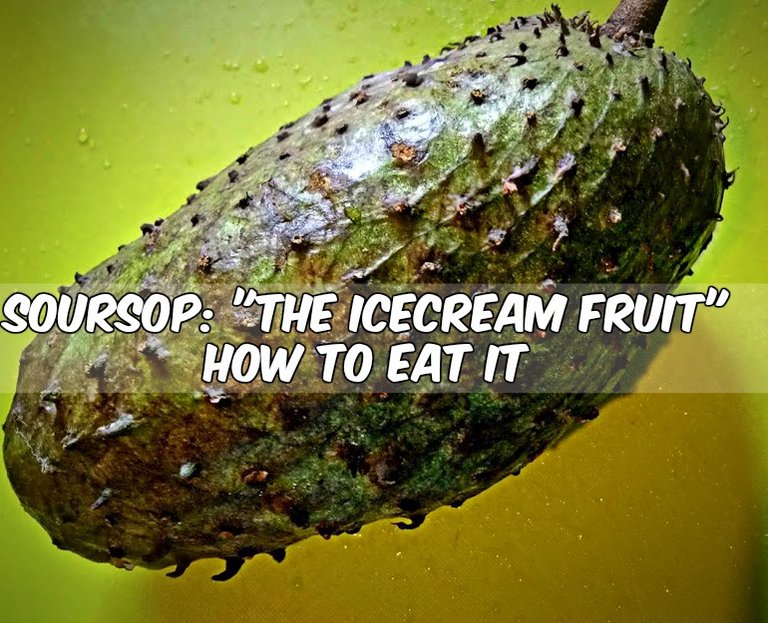
Are you ready to find out about the tastiest fruit out there?
Have you ever seen this green-skinned, black-spiked prickly looking fruit before?
If you have, maybe you've wondered what it was.
If you've wondered what it was, then at some point, I bet you've wondered how to eat it!

(she loves it, btw!)
That is where I come in.
Soursop, according to Wiki:
- ...Is Native to the Americas
- ...Has been spread around the world due to its popularity
- ...Can now be found in Latin America, the Caribbean, Africa, Southeast Asia and the Pacific
- ...Beverages and products can be purchased throughout the globe
This particular fruit in the picture was purchased here in Bali, Indonesia and is at it's shining moment, ready to be eaten (this one was perfect!)
How to tell if your soursop is ready to eat:
- It should look like the fruit in this picture and be soft to the touch
- An unripe soursop is very green and the skin is hard, the black spikes are more rough (the "bristles" soften with ripeness)
- The skin should pull away easily as I will show in a later step. An unripe fruit's skin will be tethered to the fruit and very difficult to remove
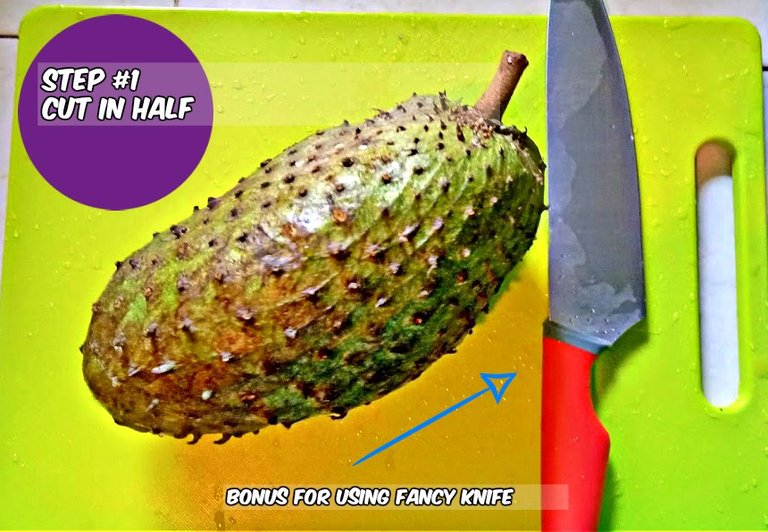
Soursop is my favourite fruit!
Do you want to know why?
- It's sweet
- It's luscious
- It can be eaten raw
- It makes for amazing juices and smoothies
- It reminds me of icecream (and it's vegan!) ;)
I remember the first time I encountered this strange looking fruit. I was in Belize, Central America and I had a glass of soursop juice. Never having seen the fruit or tasted it before, I was drawn in by it’s creaminess and have been a loyal fan ever since. <3
Soursop's flesh is...
- Juicy, white pulp
- Containing a thick center of fiber
- Filled with indigestible, black seeds throughout that must be removed
- Made into many products such as smoothies, juices and ice creams
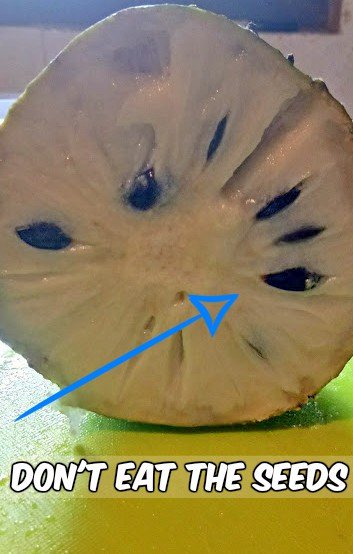
Here in Indonesia, a famous recipe for soursop is called "dodol sirsak." The pulp is boiled in water and sugar is added until the mixture hardens, creating a sweetmeat. Really, you can't go wrong with soursop. I say eat it anyway you can! :)
So, how do I eat it? You must be asking!
Well, I'm sorry for keeping you waiting, let me show you.

If you can, compost your scraps :)
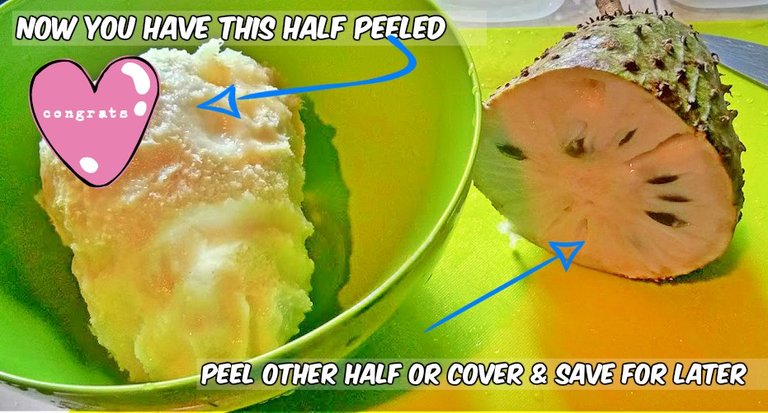
When you are removing the seeds from the flesh:
- The fruit just falls a part into sections
- The middle part will come loose from it
- You can eat it if you want (but I usually take it out and add it to the compost!)
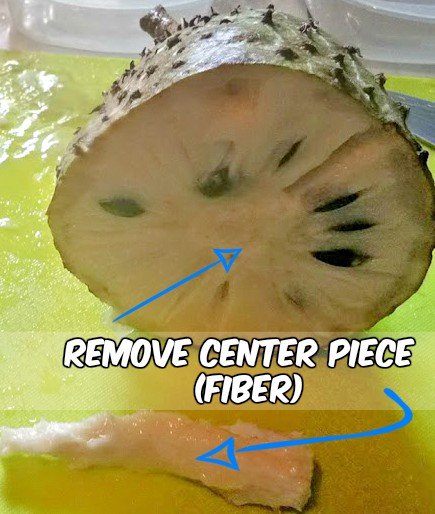
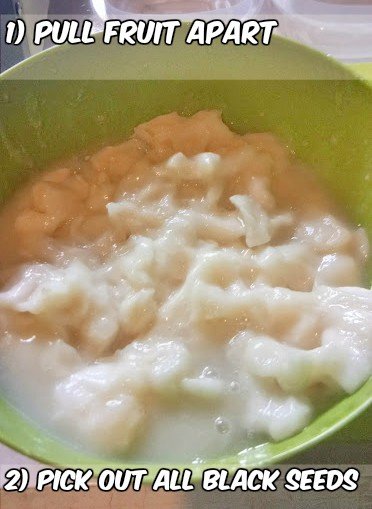
- Soursop fruits tend to be large.
- I usually only use half at a time and save the rest for later.
- If you want to use it all, continue the same steps on the other side.
- You can wrap and refrigerate (but it won't last long so what I like to do is process it all at once and store the remaining flesh in containers to put in the freezer for smoothies!)

I hope you enjoy my favourite fruit!
From a nutritional standpoint soursop offers
- B1: Thiamine
- B2: Riboflavin
- B3: Niacin
- B5: Pantothenic Acid
- B6
- B9: Folate
- Choline,
- Vitamin C
- Calcium
- Iron
- Magnesium
- Phosphorous
Just in case you needed more reasons to enjoy!

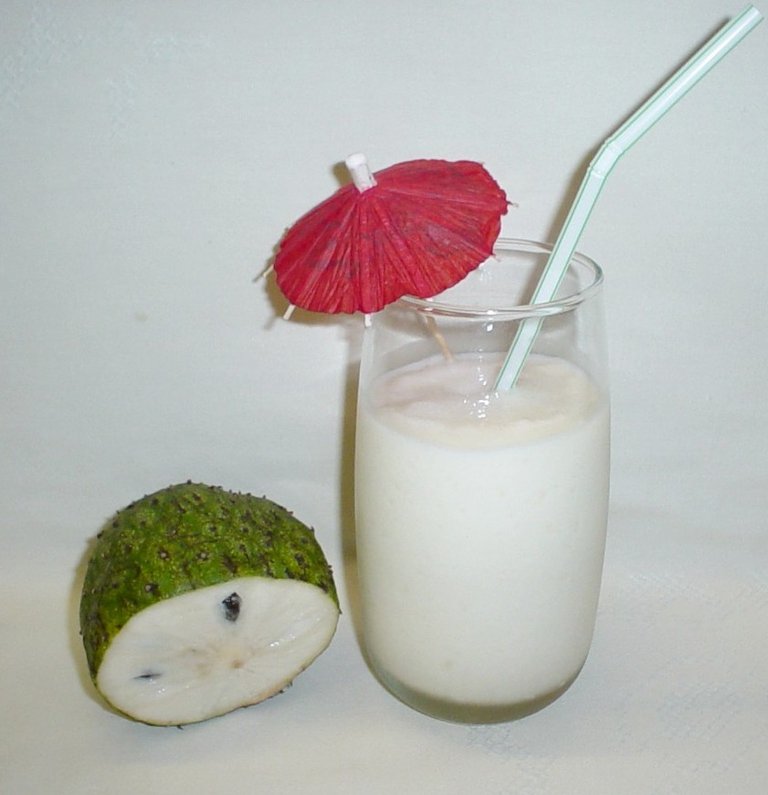
Congratulations! This post has been upvoted from the communal account, @minnowsupport, by heart-to-heart from the Minnow Support Project. It's a witness project run by aggroed, ausbitbank, teamsteem, theprophet0, and someguy123. The goal is to help Steemit grow by supporting Minnows and creating a social network. Please find us in the Peace, Abundance, and Liberty Network (PALnet) Discord Channel. It's a completely public and open space to all members of the Steemit community who voluntarily choose to be there.
If you like what we're doing please upvote this comment so we can continue to build the community account that's supporting all members.